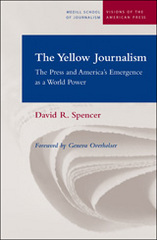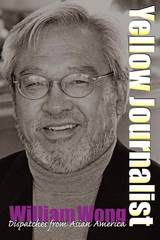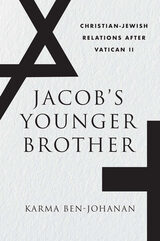119 books about Journalists and 2
start with Y
119 books about Journalists and 2
119 books about Journalists
2 start with Y start with Y
2 start with Y start with Y

The Yellow Journalism
The Press and America's Emergence as a World Power
David R. Spencer
Northwestern University Press, 2007
When a case containing dismembered human remains surfaced in New York's East River in June of 1897, the publisher of the New York Journal--a young, devil-may-care millionaire named William Randolph Hearst--decided that his newspaper would "scoop" the city's police department by solving this heinous crime. Pulling out all the stops, Hearst launched more than a journalistic murder investigation; his newspaper's active intervention in the city's daily life, especially its underside, marked the birth of the Yellow Press. In a work that studies the rise and fall of this phenomenon, David R. Spencer documents the fierce competition that characterized yellow journalism, the social realities and trends that contributed to its success (and its ultimate demise), its accomplishments for good or ill, and its long-term legacy.
Most notable among Hearst's competitors was New York City's The World, owned and managed by a European Jewish immigrant named Joseph Pulitzer. The Yellow Journalism describes how these two papers and others exploited the scandal, corruption, and crime among the city's most influential citizens, and its most desperate inhabitants--a policy that made this "journalism of action" remarkably effective, not just as a commercial force, but also as an advocate for the city's poor and defenseless. Spencer shows how many of the innovations first introduced during this period--from investigative reporting to the use of color, entertainment news, and cartoons in papers--have had a lasting effect on journalism; and how media in our day reflects the Yellow Press's influence, but also its threatened irrelevance within the broader realities of contemporary society.
Most notable among Hearst's competitors was New York City's The World, owned and managed by a European Jewish immigrant named Joseph Pulitzer. The Yellow Journalism describes how these two papers and others exploited the scandal, corruption, and crime among the city's most influential citizens, and its most desperate inhabitants--a policy that made this "journalism of action" remarkably effective, not just as a commercial force, but also as an advocate for the city's poor and defenseless. Spencer shows how many of the innovations first introduced during this period--from investigative reporting to the use of color, entertainment news, and cartoons in papers--have had a lasting effect on journalism; and how media in our day reflects the Yellow Press's influence, but also its threatened irrelevance within the broader realities of contemporary society.
[more]

Yellow Journalist
Dispatches from Asian America
William Wong
Temple University Press, 2001
"For three decades, William Wong has been America's most energetic and entertaining chronicler of the Asian diaspora and its effects on politics, culture, business, sports, dress, diet, and language. Like other great humorists, he exposes the painful absurdities that plague each new wave of immigrant families as they enrich the national character, from Wong's own adventurous parents to Tiger Woods. Some of these pieces offer surprising insights on geopolitics and others explore the legal and social consequences of racial discrimination, but my favorites are the playful essays, including the classic 'So That's Why I Can't Lose Weight.' "
--Jay Mathews, Washington Post reporter and columnist, and author of Class Struggle
Who are Asian Americans? Are they the remnants of the "yellow peril" portrayed in the media through stories on Asian street gangs, unscrupulous political fundraisers, and crafty nuclear spies? Or are they the "model minority" that the media present as consistently outranking European Americans in math scores and violin performances?
In this funny, sobering, and always enlightening collection, journalist William Wong comments on these and other anomalies of the Asian American experience. From its opening tribute to the Oakland Chinatown of Wong's childhood to its closing tribute to Tiger Woods, Yellow Journalist portrays the many-sided legacies of exclusion and discrimination. The stories, columns, essays, and commentaries in this collection tackle such persistent problems as media racism, criminality, inter-ethnic tensions, and political marginalization. As a group, they make a strong case for the centrality of the Asian American historical experiences in U.S. race relations.
The essays cover many subjects, from the personal to policy, from the serious to the silly. You will learn a little Asian American history and a lot about the nuances and complexities of the contemporary Asian American experience. If there is an overriding theme of these stories and essays, it is the multi-faceted adaptation of ethnic Asians to the common American culture, the intriguing roles that they play in our society, and the quality of their achievements to contribute to a better society.
Bill Wong's high school journalism teacher took him aside during his senior year and told him he would have to be "twice as good" to succeed at his chosen profession. Succeed he did, and "twice as good" he is. As Darrell Hamamoto remarks in his Foreword, "'Chinaman,' Chinese American, Asian American; any way you slice it, Bill Wong is one straight-up righteous Yellow Man."
"One of the advantages of having a writer of Bill Wong's talent around is that we don't have to depend upon intermediaries and go-betweens to give us insights about issues affecting Asian-Americans. He is often entertaining, and ironic, but underneath it all is a serious mind devoted to shattering myths about one of our fastest growing minorities."
--Ishmael Reed, author of The Reed Reader
"It is about time that America meet William Wong--an icon in journalism whose experience as a second generation Chinese-American has given him a unique lens through which life in America can be examined. For almost two decades, his columns in the Oakland Tribune and other San Francisco bay area newspapers have captured a different kind of reality about some of our most important social, cultural, and political moments. Wong's readiness to share his family, his community, and his conscience allows readers to cross a bridge into the world of Asian America. Whether it is an analysis of the 1996 campaign finance scandals or a perspective on how parent pressures and bi-cultural conflicts can play out in a young Asian American teen's life, Wong's skillful weaving of humor, irony, and poignant portrayals of the circumstances make each story linger long past the final sentence of his essay."
--Angela E. Oh, Lecturer/Former Advisory Board Member, President's Initiative on Race
"...an anthology of Wong's best writing from the last decade and a half, covering an impressive array of topics and tone."
--Asianweek
[more]
READERS
Browse our collection.
PUBLISHERS
See BiblioVault's publisher services.
STUDENT SERVICES
Files for college accessibility offices.
UChicago Accessibility Resources
home | accessibility | search | about | contact us
BiblioVault ® 2001 - 2024
The University of Chicago Press









